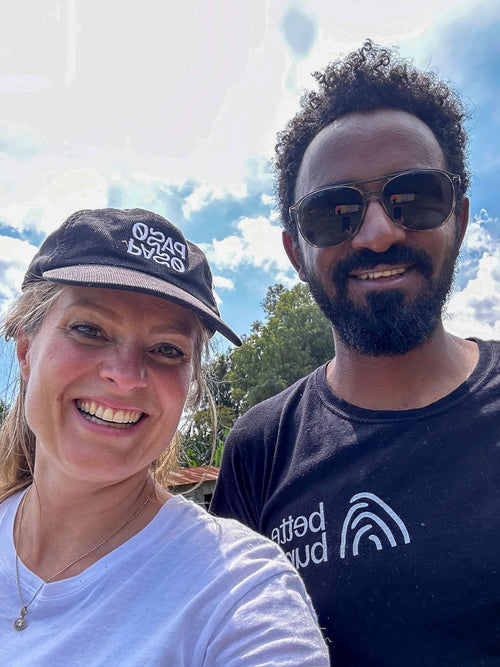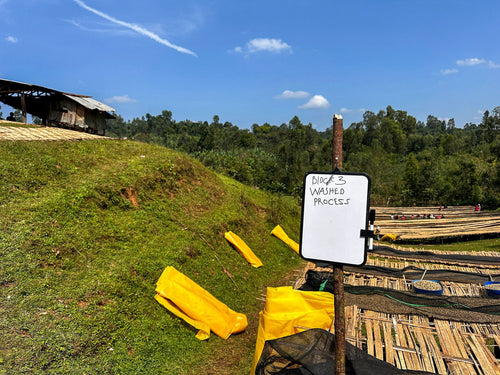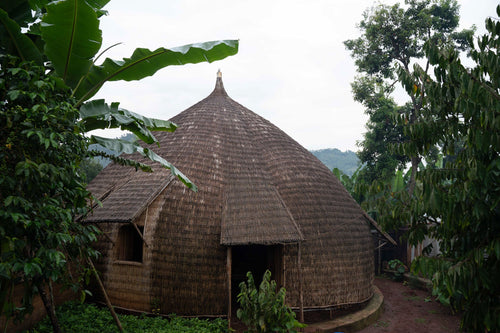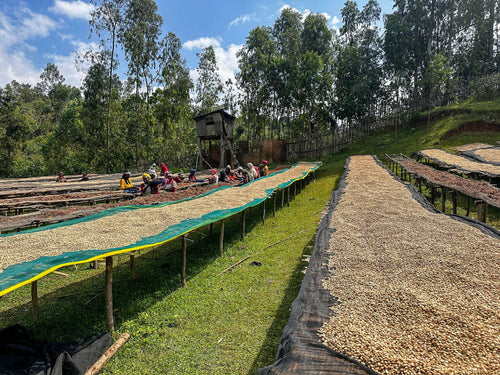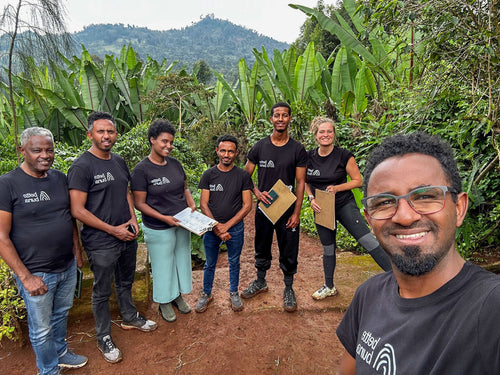This coffee is a first from our Ethiopian partners Bette Buna, and they knocked it out of the park!
Here's how it happened: We asked Bette Buna owners Hester and Dawit to do a test production of a lactic washed process, something their team had never tried before — it's a tricky procedure that involves fermenting the cherries in a saline solution before continuing with the washed process. We promised to purchase the final product no matter what. (In our opinion, if you ask a producer to try something new, they shouldn't have to carry that risk.)
As it turns out, the resulting coffee is the best washed Ethiopian coffee we’ve had in about 10 years. Seriously. In fact, this coffee is so good, we voluntarily increased our price paid for it and cancelled half our order so Bette Buna could sell the remaining bags to other roasters and get more exposure for their coffees and social projects.
We’re getting about 25 different coffees from Bette Buna this year, so we’ve decided to name each lot after one of the people who worked on producing it, exporting it, or contributing to social work at Bette Buna. This one is named for Fikr "Abiti" Getachew, who oversaw the production of this special process alongside Dawit. It's got stunning complexity and gorgeous notes of peach, hibiscus, and champagne — a rare treat that we think will be savoured by washed coffee devotees and avoiders alike!
For a bit more about Bette Buna, check out our blog post here or read on below ...
Betta Buna was founded by partners Hester Westerveld-Syoum and Dawit Syoum when they inherited their grandfather’s tiny family farm in Taferi Kela, Sidamo. With a background in NGO and development work, they decided to grow and scale the farm as the foundation for a larger company with greater impact.
Having started in 2019, they have already grown considerably. They have expanded the Taferi Kela farm from 2 to 50 hectares and have spread to a second 50-hectare farm in Megadu, Guji. Both farms have tree nurseries where climate change-resistant varietals are grown to share with surrounding farmers. Similarly, they have facilities where they not only process their own lots but also educate other farmers in processing techniques, while their Coffee Campus programme provides training in roasting, brewing, and even exporting. They provide countless opportunities for their farming communities by not only teaching and motivating farmers but also hiring local workers at their nurseries and mills, including single mothers and disabled people who would struggle to find employment elsewhere. They also work hard to incorporate sustainable farming methods, rewild forests on their land, and protect local wildlife to promote ecosystem health for coming generations.
To create this lot, cherries were de-pulped and then fermented in a saline solution in sealed barrels. There were no added yeasts or starters, but the saline environment killed most bacteria while promoting the growth of lactobacillus, hence the 'lactic' washed name. After fermentation, the coffee was washed, spread in thin layers on African raised beds, and dried in the sun for about 20-25 days. Once correct moisture levels were reached, the cherry was bagged and rested for at least 8 weeks to improve complexity and flavour profile.
We're proud to support Bette Buna and plan to partner with them for many years to come.
Elevation: 2100 MASL
Varietal: Enat Buna, 74110, 74112
Cup score: 90+
Price paid per kg: £17.84
Process: Lactic anaerobic washed
